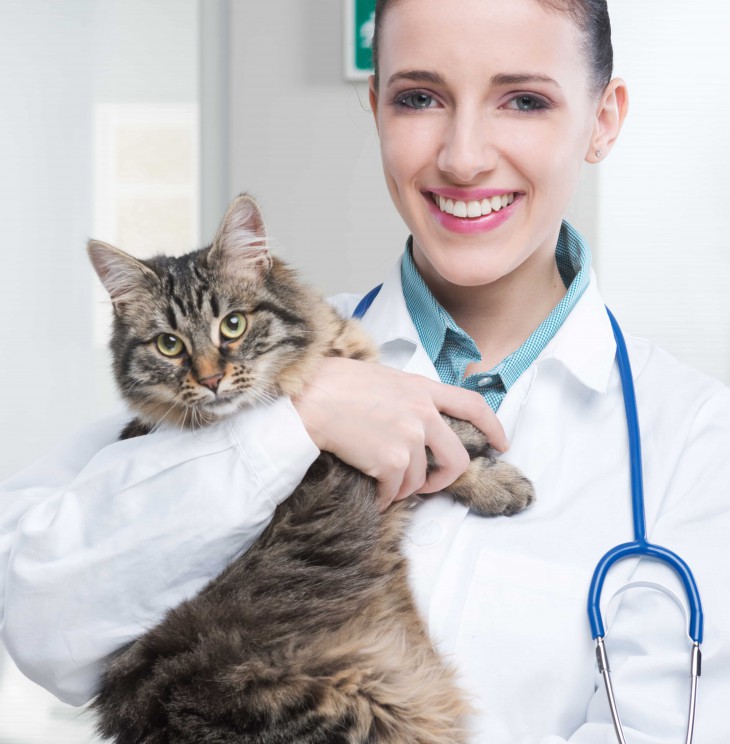As the pet parent of a cat, there comes a time when you have to do the disagreeable task of having to clean up your fur-baby’s hairball. Of course your cat will pick up the most inopportune time to cough up a long and disgusting hairball. Usually right after you have installed an expensive light-colored carpet, or as you are about to bolt out the door before you’re late to work.
So what’s a pet parent to do? First, if you want to be the pet parent of kitten or a cat, you need to accept that hairballs and cats go together like hand in glove. Once you accept this fact, you need to understand what hairballs are, why do cats get them, and how to treat them.
What is a hairball? A hairball (also known as trichobezoar) is “…a damp wad of undigested hair, moistened by bile and other digestive fluids,” according to an article in the Cornell Feline Health Center’s website*.
Why do cats get hairballs? Basically, a cat’s fastidious grooming habits are to blame. Since your furry little friend cannot pick up a brush and brush its hair, it has to rely on its tongue to the job. A cat’s tongue has tiny hook-like structures that force the hair down the cat’s digestive system. In most cases, the hair passes through without incident. However if the fur builds up in the stomach, your cat will vomit it back out.
How do I know if my cat has hairballs? Cats are pretty self-sufficient creatures. If your cat has a hairball, it will most likely hack up the hairball, and go about its business while you are left with the clean-up detail. A hairball attack might happen once or twice a week. This is nothing to worry about. Take your four-legged companion to a veterinarian if it exhibits one or more of the following symptoms: constant vomiting, gagging, retching or hacking without producing a hairball, loss of appetite, constipation, diarrhea, or lethargy as this might be the signs that your pet is experiencing severe blockage.
What’s the best way to treat a cat with hairballs? As mentioned before cats and hairballs come as a packaged deal, unfortunately. The good thing is that there are over-the-counter remedies formulated to combat hairballs.
Nowadays, there are a lot of cat foods that contain high-fiber formulas that can improve your cat’s coat thereby reducing shedding and the need for a cat to groom itself. Examples of foods that contain hairball-reducing formulas are Blue Buffalo Wilderness Weight Control Hairball or VetCrafted Hairball Remedy for Cats Treats.
In addition there are laxatives that can help a cat pass the hairball along the digestive tract. Some of the top rated laxatives are Laxatone and Cat Lax.
Is there a way to prevent hairballs in cats? Not really, but there are ways to reduce your cat’s frequency of hairball episodes. Grooming your cat is one of the most effective methods. Brushing your cat’s coat on a daily basis will significantly reduce the incidence of hairballs. Plus, it is a great way to spend some extra bonding time with your buddy. If you don’t already have pet grooming implements, we suggest a de-shedding tool and a grooming kit as a great way to start.
To sum it up: Cats get hairballs when there is a buildup of fur in their stomach which they then vomit. For the most part, hairballs are harmless however your cat might require immediate medical attention if a hairball episode is accompanied by one or more of the following symptoms: vomiting, gagging, retching or hacking without producing a hairball, loss of appetite, constipation, diarrhea, or lethargy. Treatment of hairballs usually consists of cat food formulated to reduce shedding, or laxatives to help a cat pass the hairball.
*Source: Feline Hairballs – A Hairy Dilemma. https://www.vet.cornell.edu/fhc/Health_Information/CW_Hair.cfm Accessed on 3/3/2016.





